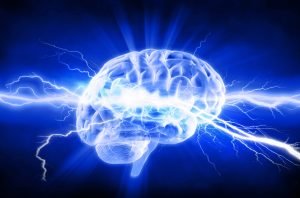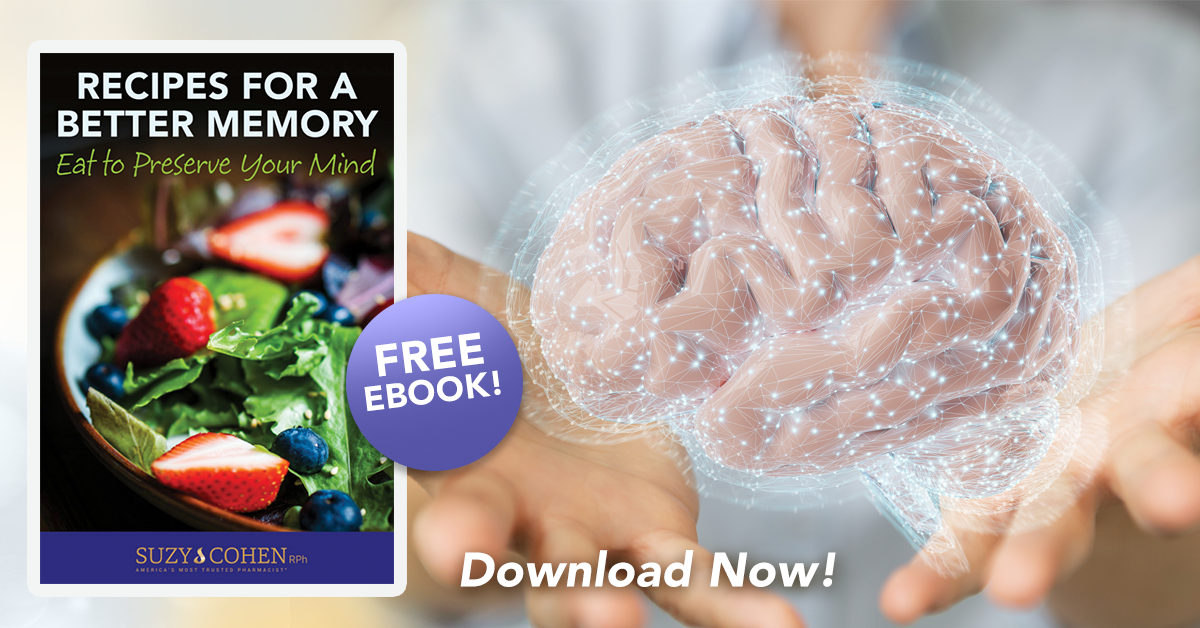What's On This Page?
ToggleMagnesium L-threonate is a dietary supplement that has come into focus lately because it penetrates the blood-brain barrier and gets into the brain tissue. This is different than most magnesium supplements. It becomes important for people who want better focus, faster cognitive function and more brain power. People with attention problems may also benefit from a brain-loving form of magnesium.
Have you ever forgotten the name of someone you know? Or where you put your phone? Or keys?

It happens to all of us at times, but what if you frequently find that you have trouble finding the right word or you forget to pay your bills, or get lost easily? Your kids will say you had a “brain fart” or “senior moment” but honestly, it’s nothing to kid about. Cooking, housework, and daily self-care skills start to decline. Next comes the conversation about senior living facilities, but wait, you are too young for that! What’s going on?
Don’t be hard on yourself, keep in mind we live in an information-stimulation age.
Watch the news for an hour, you’ll be so wired from all the sad stories ticking by, you will notice the silence as soon as you shut off the TV. Devices? Mmm, love ‘em and hate ‘em.
All these tweets, posts, emails, and mental chatter allow for virtually no space between your own thoughts.
Our age matters too because the older we get, the more rust (free radicals) we accumulate.
Brain issues aren’t limited to adults. In children, the inability to focus quickly gets diagnosed as ADHD. In comes Adderall. It’s easy to blame sugar, the parents, or too much screen time, but I don’t. The fact is, healthy cognition cannot occur unless you have the nutrients to feed each and every brain cell, and the cell membrane. As a population, we don’t do that very well. Magnesium L-threonate is known to help both memory and attention, as well as depression and anxiety. Magnesium L-threonate loves your brain and vice versa.
Medications that Block or Inhibit Magnesium
Did you know over 200 popular medications block magnesium, contributing to deficiencies? The primary offenders are antacids, acid blockers, hormonal contraception, and diuretics. Supplementing helps, however, most forms of magnesium are very hard on the stomach, or they cause diarrhea. Magnesium oxide is probably the most inferior (cheapest) form to take in my opinion, yet it is sold nationwide.
You should be picky because many forms of magnesium don’t even penetrate your brain where you need it most. MAGNESIUM L-THREONATE does.

If you have brain health concerns, especially problems with memory or attention there is much to consider, it’s not just magnesium and I don’t want you to overlook other possible issues. The essential factors to consider include mitochondrial health, methylation problems, blood sugar imbalances, autoimmune disorders, gluten intolerance, heavy metal toxicity, chronic pain, sleep deprivation, stress, thyroid problems, and drug muggers (drugs that steal nutrients from your body).
I wrote a book on this topic that is available in various languages. Find it on Amazon, or click on the image above.
Eating foods that are rich in magnesium can help, although please note that foods are not giving you the “threonate” type. Still, I believe in nutrition and think that a healthy diet is better than any supplement or medication. Your body runs on nutrients first and foremost.
Leafy greens are rich in magnesium. Scroll down below to see a graphic with foods that are rich in magnesium. What people jokingly call “rabbit food” is rich in magnesium. You can read an article I wrote years a hundred ago 😅 called, Rabbit Food Will Have You Hopping!
Magnesium L-threonate is Promising
All of these factors play a role, but today I want to talk with you about a special mineral that is pretty new to the market. It’s called magnesium L-threonate and it has shown very promising results within the medical literature for age-related memory loss problems. Some animal studies show excellent results in improving memory problems in rodents that had severe memory dysfunction.
Alzheimer’s causes the brain to lose many of its connections or synapses leading to a tangled web. The synaptic damage causes major disconnects that result in jumbled short- and long-term memories. I won’t bore you, but your physician may need to know synapse damage occurs, in part, from overzealous glutamate molecules that activate the cell’s N-methyl-D-aspartate (NMDA) receptor which then turns on an enzyme called Beta-secretase 1 (BACE1) and that churns amyloid plaques. Some people even have a genetic SNP in the BACE1 gene.
Interested in Better Cognition?
Consider MagFocus® a delicious-tasting powder and it is FREE of calcium, artificial colors, and magnesium stearate. This is pure and provides a 2 (or more) month supply. Many users of my supplement have found that they can take even less than what is recommended on the label, for example, 1/8 to 1/4 of a scoop works well for micro dosing.
Brain Synapses and Plaquing
It sounds complicated, but the simple part is that magnesium l-threonate appears to help. An animal study published in September 2014 showed that magnesium L-threonate slowed the hyperactive NMDA receptor signaling pathway improved synapse plasticity and reduced plaquing. More importantly, the magnesium l-threonate entered the hippocampus which is a big deal; that is your memory center.
The turnaround was fairly dramatic, even when the treatment was given during the end stage of the disease state. An earlier study in 2013 showed how well magnesium L-threonate worked to improve memory deficit in people with chronic pain by inhibiting TNFα [tumor necrosis factor alpha] which is a pain-causing chemical (when produced in high amounts).
Magnesium participates in hundreds of metabolic pathways all over your body, and many in your brain, so adequate Central Nervous System [CNS] levels are crucial for optimal health.
Clinical applications for magnesium l-threonate are:
- Supports healthy levels in the central nervous system*
- Supports healthy synapse function and number*
- Magnesium L-threonate may support restorative sleep*
- Supports cognitive and neurological health*
- Magnesium L-threonate helps with stress management and a healthy mood because it penetrates the blood-brain barrier*

Suzy Cohen, has been a licensed pharmacist for over 30 years and believes the best approach to chronic illness is a combination of natural medicine and conventional. She founded her own dietary supplement company specializing in custom-formulas, some of which have patents. With a special focus on functional medicine, thyroid health and drug nutrient depletion, Suzy is the author of several related books including Thyroid Healthy, Drug Muggers, Diabetes Without Drugs, and a nationally syndicated column.



